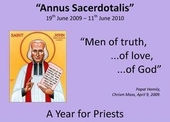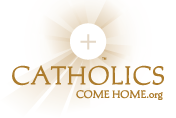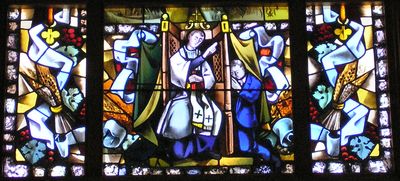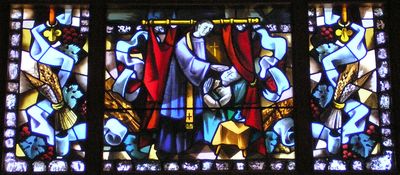| Saturday - 28 February 2026 | Ard Easmuinn, Dundalk, Co. Louth, Ireland |
| Other Sacraments |
Sacraments of HealingThrough the sacraments of Christian initiation, man receives the new life of Christ. Now we carry this life "in earthen vessels," and it remains "hidden with Christ in God." We are still in our "earthly tent," subject to suffering, illness, and death. This new life as a child of God can be weakened and even lost by sin. The Lord Jesus Christ, physician of our souls and bodies, who forgave the sins of the paralytic and restored him to bodily health, has willed that his Church continue, in the power of the Holy Spirit, his work of healing and salvation, even among her own members. This is the purpose of the two sacraments of healing: the sacrament of Penance and the sacrament of Anointing of the Sick. (Catechism of the Catholic Church) Sacrament of Reconciliation/Penance {Confessions}
Confessions are held at Holy Redeemer Church on Saturdays from 5.15pm - 5.45pm - . The confessional is located toward the right hand side (when entering the main door) at the back of the Church (in the Crying Chapel).
Please look above the door to ascertain whether someone is already having their confession heard, if the light is red that indicates someone is having their confession heard, green indicates you may enter.
Confession may also be organised at any time, by arrangement with the priest.
During Lent and Advent, and at other times of the year (e.g. St. Gerard's Novena) a Penitential Service will be organised; Also there are special times for Confession arranged in the run up to the feasts of Christmas & Easter.
Parish Schools - at least twice a year (usually Christmas & Easter) and by arrangement. Anointing of the Sick
"By the sacred anointing of the sick and the prayer of the priests the whole Church commends those who are ill to the suffering and glorified Lord, that he may raise them up and save them. And indeed she exhorts them to contribute to the good of the People of God by freely uniting themselves to the Passion and death of Christ" (Catechism of the Catholic Church). Celebrating this Sacrament at the daily Mass is a beautiful way to invite the community to prayer for and with you. The Community also celebrates this sacrament on various times during the year.
Please do not arrange for someone else to be anointed because you feel they should be anointed, only if they request the sacrament. This avoids embarrassing the priest and the ill person avoiding an otherwise awkward situation. |



